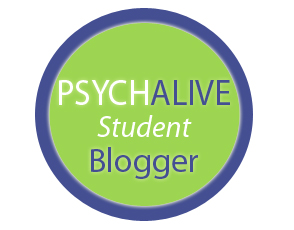Taking Control of Your Happiness by Debunking Misconceptions About What Happiness Is
Let’s face it; with the expectation that society holds for near perfection, it is easy to get trapped in thoughts of self-doubt, agonizing fear, and sheer exhaustion from the day-to-day issues and errands we must conquer. How many of us halt our anxious thoughts and replace them with thoughts that bring us happiness, relaxation, and peace of mind? Prior to the last few decades, psychology was almost entirely devoted to pathological symptoms and cures, with a disregard for the power of positivity. Despite the recent research in positive psychology, we are still burdened by the pressure of having to climb to the top of the ladder, having to make a lot of money to be happy, and having to “fix” ourselves to a supermodel status. Thus, we often find disappointment in reality and attribute these shortcomings to ourselves.
I find it little coincidence that as our technological and consumerism driven lifestyles increase, so has the rate of depression. Despite the pessimistic tendencies many have developed as a result of our hustle bustle lifestyles, there is hope for joy. The neuroplasticity of our brains allow us to rewire the way we think, so by understanding one’s self, the common misconceptions of happiness, and what we can do to change our state of mind, we can discover that happiness is not the goal, it is the journey.
In the last century, we have have been conditioned to chase after the American Dream. We are taught that if we get an education, work hard, and settle down with a family, our happiness will thrive. I am not attempting to discredit the happiness that these can bring, only to minimize their power as the main source of our happiness. Here are some common misconceptions:
Money = Happiness
Many studies have shown that once someone makes enough money to afford being comfortable (i.e. shelter, food, the occasional fun activity) their happiness does not fluctuate with increased income, meaning there is a very minute correlation between money and happiness. However, studies show that generally, people are extremely motivated in continuing to increase their income regardless. The only sense in which money buys happiness is when we invest in activities rather than material goods. Whether it is a concert, vacation, sports event, or other activities; spending money on meaningful social interaction brings higher levels of pleasure then purchasing that new big screen TV.
Control = Happiness
Whether we choose to admit it or not, there is a part of each of us that takes pleasure or comfort in exerting some form of control. Let’s be honest, most of us who have experienced a serious relationship have attempted to change something about our significant other. We think: if I can just fix this about them, then I know our relationship will be happy. Many exert their attempts for control through addiction, eating disorders, domestic abuse, or other social and self-destructive behaviors. Although we cannot control the hand we are dealt, we do have control over how we deal with it. Our minds are much stronger than we think, and by retraining our conscious thoughts to “think positive,” we can ultimately make lasting impressions on our subconscious thoughts.
Marriage = Happiness
Research shows that having a supportive and positive social circle will increase our overall happiness, but societal pressures encourage us to find our Prince Charming, get married, reproduce, and live happily ever after. We expect that our partner will live up to the daunting task of providing us eternal happiness, but placing the source of one’s happiness in another’s hands is an unrealistic and unfair demand. We are each responsible for our own happiness and unless we are willing to appreciate the fact that we cannot control one another and look at happiness as a result of our own actions, we will constantly be disappointed in our marriage. We are social creatures and need others to complete us, but we cannot see one person as our entire source of happiness; rather we need to find happiness from a broad social circle and from within.
Success = Happiness
To be honest, I was surprised at my mediocre level of excitement on the day I graduated from college. I thought to myself, this is what I have been working since Kindergarten for, why am I not overwhelmed with exultation. Eventually it dawned on me, it was not the diploma that made my four years worth it, it was the all-nighters, the friends made, and the lessons learned. It was the broadened perception of society, religion, the world, and myself that brought me happiness; not the piece of paper proving I can critically think or take a test. We tend to believe that once we reach our end goal we will then experience a true state of happiness. Alan Fridlund, a psychologist who teaches at UC Santa Barbara said in his Last Lecture speech that life is not about collecting the most prizes before death. He states, “The way to think of achievement is as a spin-off of a process of which you enjoy, not the distant target of brim achievement.” The end result only provides happiness for a moment; it is the process of working on something you are enjoying being apart of that is the ultimate reward.
So how do we actually train our brains to become happier? A common practice of calming the mind and bringing peace is through meditation. Sitting still, slowly breathing, and clearing the mind of negative thoughts is a great place to start enjoying a more tranquil life. Though at first, meditation can be difficult to master, it builds patience through confronting failure. Another way of bringing serenity to the brain is through keeping a journal and accompanying this with writing down things you are grateful for. By practicing writing the positive things in life, we can rewire the brain to think more optimistically. It is also helpful to randomly practice smiling. By smiling throughout the day the brain will associate the action with happy thoughts.
Most importantly, take control of yourself and your feelings. Although this seems easier said than done, realizing that you have control over your emotions is vital to reaching a more peaceful state of mind. We must be able to delve deeper into our own minds and ask ourselves why am I feeling a certain way?, can I control it?, how?, and will I be okay? If we do ourselves the favor of being honest with ourselves, hopefully we can create a clearer sense of the situation and ultimately gain peace of mind. By increasing the joy in our lives we improve our ability to analyze, we see the beauty around us, we improve our cognition, and best of all, we create a catalyst affect of more happy thoughts. Practicing happiness daily will affirm that happiness is not the destination, it is a way of living. Although our minds are complex and our sub-conscious is powerful, we each possess the power to control our own brains and realizing this will lead to a happier and more fulfilling life.
Tags: happiness, keys to success, living happy, money, self-awareness7 Comments
Leave a Reply
You must be logged in to post a comment.












Alex,
You were born to write. Your article made me think of myself. Great job. Love You
Wow!!! Great Article!! I am telling everyone I know to read this…
This says to me that this is very complex matter! Freedom is not always a happy maker!!
your article is clear and concise. I was surprised to read you recently graduated college. You sound wise beyond your years. Great work!
Thank you very much for the compliments! I’m so glad you enjoyed this!
Alex I miss your contributions this is a great blog
I am reading from Nigeria. Indeed this article really went down well into me. Keep it up dear.